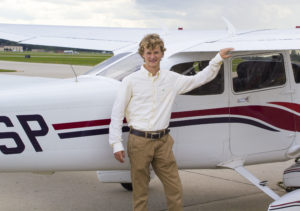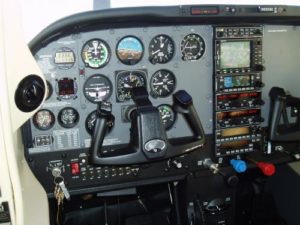It is one of the most common questions asked when someone is seeking to get their pilots license. Should I attend a flight school or join a flying club? Unless you have been living under a rock in the aviation community these two terms have most likely been in your vocabulary since the beginning. But for those looking get their private pilots license it may be one of the most important questions they need to ask themselves. In this short article we intend to get you the information you need and deserve to make the right choice before you look to tackle one of the greatest accomplishments on earth.
Flying Club
The definition according the FAA Airport Compliance Manual, Order 5190.6B, “the FAA defines a flying club as a nonprofit or not-for-profit entity (e.g., corporation, association, or partnership) organized for the express purpose of providing its members with aircraft for their personal use and enjoyment only.” Now, there can be for-profit club or other unique organization, but typically a flying club is of the non-profit type.
The flying club will generally consist of pilots and flight instructors and the typical goal among the membership is to spread the cost of flying across the membership allowing a much lower investment for ownership and hourly expense. Many other benefits include the access to different types of aircraft, flight instructors within the membership, and for some nice social gatherings.
According to the Aircraft Owners and Operators Association, there are things a flying club can and cannot do:
What a Flying Club Can Do:
- Flying club members can receive flight training in flying club aircraft from anyone authorized by the airport authority to provide flight instruction on field.
- Flying club members who are CFIs can provide instruction to other club members in club aircraft.
- Flying club members who are mechanics can perform maintenance on aircraft that are components of their club.
- Compensation for member-performed maintenance and flight instruction is dependent on approval from your airport manager.
What a Flying Club Cannot Do:
- Flying clubs cannot offer scenic flights, charter service, or any other commercial activity.
- Flying clubs and their members cannot lease or sell any goods or services to anyone other than a member of the club (unless it is the sale or exchange of its capital equipment).
Generally speaking most flying clubs operate with an elected board consisting of a President, Secretary, Treasurer, Accounts Payable, Accounts Receivable, and Membership Director. Greater Flint Pilots Association based out of Flint, Michigan is an example of a flight club that also has other board members such as Safety Director, Chief Flight Instructor, and Webmaster.
One of the most attractive things about flying clubs is the flight instructors within the club. Most flying clubs have several flight instructors that are members of the club and make their flight training services available to club members at a fee. You could be a brand new member just starting out with your first flying lesson or seeking the ultimate challenge of becoming a flight instructor yourself. These instructors not only love to fly but they love teaching others about aviation.
Another major factor of a flying club is the equal share ownership of the airplanes in the club between members. In most cases like GFPA for instance, when you purchase an equity share and become a member, you are now a fractional owner in the entire fleet of planes. This shared expense of ownership allows the clubs members to fly the aircraft at a much lower hourly rate by spreading out the ownership costs including hangar rental, maintenance, insurance, and other necessary items.
Flight School
The Free Dictionary gives one of the most simple definitions of a flight school, “a school for teaching students to fly airplanes.” It really is that simple, they are a business for profit that are there to train people how to fly. Generally, the business is owned privately and has a chief flight instructor along with other flight instructors working under them who also give flying lessons.
What is right for you?
For any person looking to get their pilots license the first rule of thumb is to find something that is close enough to you so you can be committed to your training without long travel time concerns. If you have any intent on flying after you receive your private pilot certificate most industry experts will advise you to join a flying club over a flight school out of the gate. The reason for this is that not only will you have great access to aircraft and flight instructors, but when you are done with your certificate in hand, you are still a member with access and can now go enjoy flying with your friends and family.
A flying club is not just an expense, it is truly an investment that can give you one of the most amazing freedoms available on planet earth. You should weight your options very carefully and contact local flight schools and flying clubs to compare what your local options are so you can make the best choice. Good luck!

